Related Research Articles
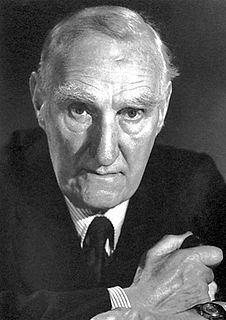
John Boyd Orr, 1st Baron Boyd-Orr,, styled Sir John Boyd Orr from 1935 to 1949, was a Scottish teacher, medical doctor, biologist, nutritional physiologist, politician, businessman and farmer who was awarded the Nobel Peace Prize for his scientific research into nutrition and his work as the first Director-General of the United Nations Food and Agriculture Organization (FAO).
The Doctor of Education is both a research and professional doctoral degree that focuses on the field of education. As the highest degree in the field, it prepares the holder for academic, research, administrative, clinical, or professional positions in educational, civil, private organizations, or public institutions.
The British Psychological Society (BPS) is a representative body for psychologists and psychology in the United Kingdom.
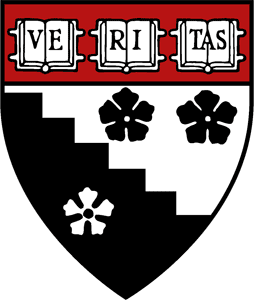
The Harvard Graduate School of Education (HGSE) is one of the graduate schools of Harvard University and one of the top schools of education in the United States. It was founded in 1920, when it was the first school to establish the EdD degree. Led by Dean Bridget Terry Long, the mission of HGSE is to prepare leaders in education and to generate knowledge to improve student opportunity, achievement, and success. It seeks to accomplish this mission by operating at the nexus of practice, policy, and research.
Quantitative psychology is a field of scientific study that focuses on the mathematical modeling, research design and methodology, and statistical analysis of human or animal psychological processes. It includes tests and other devices for measuring human abilities. Quantitative psychologists develop and analyze a wide variety of research methods, including those of psychometrics, a field concerned with the theory and technique of psychological measurement.
Sir John Currie Gunn was an influential Scottish mathematician and physicist.

Susan Sutherland Isaacs, CBE was a Lancashire-born educational psychologist and psychoanalyst. She published studies on the intellectual and social development of children and promoted the nursery school movement. For Isaacs, the best way for children to learn was by developing their independence. She believed that the most effective way to achieve this was through play, and that the role of adults and early educators was to guide children's play.
Richard Stanley Peters was an English philosopher. His work belongs mainly to the areas of political theory, philosophical psychology, and philosophy of education.
Thomas Ferguson RodgerCBE FRCP Glas FRCP Ed FRCPsych was a Scottish physician who was Professor of Psychological Medicine at the University of Glasgow from 1948 to 1973, and Emeritus Professor thereafter. He joined the Royal Army Medical Corps during the Second World War and rose to become a consultant psychiatrist with the rank of Brigadier.
Sir Michael Richard BondFRSA FRSE FRCPsych FRCPGlas FRCSE is an English physician and medical researcher, whose specialism lies in the study of pain. He has held a number of national and international appointments in his field and was Professor of Psychological Medicine at the University of Glasgow from 1973 to 1998.
Herbert James Paton FBA FSA Scot, usually cited as H. J. Paton, was a Scottish philosopher who taught at various university institutions, including Glasgow and Oxford. He worked in British intelligence during the two world wars and played a diplomatic role on behalf of Poland at the 1919 Versailles conference. In 1968, the year before his death, he published The Claim of Scotland, a plea for greater general understanding of the constitutional position of his own native country.
Sir James Drever FRSE was a Scottish psychologist and academic who was the first Professor of Psychology at a Scottish university.
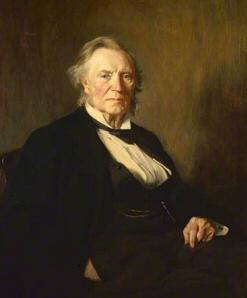
Prof Simon Somerville Laurie FRSE LLD was a Scottish educator. He became Bell Professor of Education at Edinburgh University in 1876. He campaigned energetically and successfully for better teacher training in Scotland.
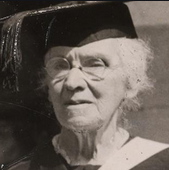
Flora Philip was a Scottish mathematician, one of the first women to receive a degree from the University of Edinburgh and the first female member of the Edinburgh Mathematical Society.

Dunfermline College of Physical Education, was a college for training teachers of physical education and hygiene in Scotland. The college was established in Dunfermline in 1905, moved to Aberdeen in 1950, and merged with Moray House College of Education, University of Edinburgh, in 1987.

Scottish education in the nineteenth century concerns all forms of education, including schools, universities and informal instruction, in Scotland in the nineteenth century. By the late seventeenth century there was a largely complete system of parish schools, but it was undermined by the Industrial Revolution and rapid urbanisation. The Church of Scotland, the Free Church of Scotland and the Catholic church embarked on programmes of school building to fill in the gaps in provision, creating a fragmented system. Attempts to supplement the parish system included Sunday schools, mission schools, ragged schools, Bible societies and improvement classes. Scots played a major part in the development of teacher education with figures including William Watson, Thomas Guthrie, Andrew Bell, John Wood and David Stow. Scottish schoolmasters gained a reputation for strictness and frequent use of the tawse. The perceived problems and fragmentation of the Scottish school system led to a process of secularisation, as the state took increasing control. The Education (Scotland) Act 1872 transferred the Kirk and Free Kirk schools to regional School Boards and made some provision for secondary education. In 1890 school fees were abolished, creating a state-funded, national system of compulsory free basic education with common examinations.
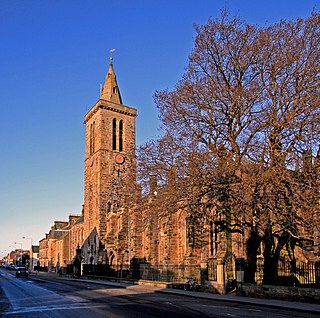
The history of universities in Scotland includes the development of all universities and university colleges in Scotland, between their foundation between the fifteenth century and the present day. Until the fifteenth century, those Scots who wished to attend university had to travel to England, or to the Continent. This situation was transformed by the founding of St John's College, St Andrews in 1418 by Henry Wardlaw, bishop of St. Andrews. St Salvator's College was added to St. Andrews in 1450. The other great bishoprics followed, with the University of Glasgow being founded in 1451 and King's College, Aberdeen in 1495. Initially, these institutions were designed for the training of clerics, but they would increasingly be used by laymen. International contacts helped integrate Scotland into a wider European scholarly world and would be one of the most important ways in which the new ideas of humanism were brought into Scottish intellectual life in the sixteenth century.
Prof Robert Craigie Cross FRSE CBE (1911-2000) was Regius Professor of Logic at Aberdeen University. He served as Vice Principal of the university 1974-78.
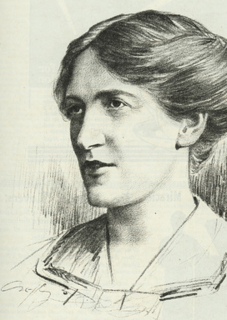
Frances Helen Melville, was a suffragist, advocate for higher education for women in Scotland, and one of the first women to matriculate at the University of Edinburgh in 1892.
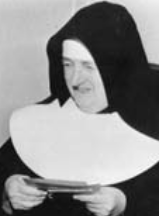
Hilda Gertrude Marley OBE, known in her religious order as Sister Marie Hilda, was a British educator, psychologist and Roman Catholic religious sister.
References
- ↑ "Robert Rusk Papers". University of Strathclyde. Retrieved 23 May 2020.
- ↑ "History of Psychology Centre:Rusk, Robert R (1879-1972) - Interview Transcript". British Psychological Society. Retrieved 6 June 2020.